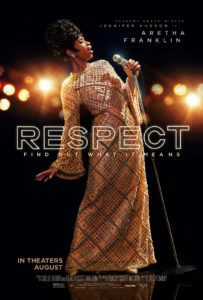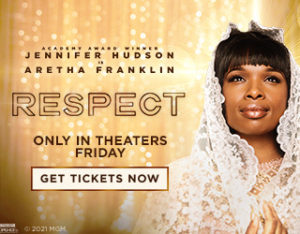The other day, I got up much earlier than usual and I felt the urge to pray. I pray when I get up in the mornings, but this day it felt different, you know? Anyhoo, I grabbed my blanket, got down on the floor, and went for it.
Once I picked myself up, I got back in bed and went back to sleep. My alarm went off a couple of hours later, so I was ready to begin my day. I got up and brushed my teeth, started my Keurig (got to have my coffee), then went to my room and picked up my Bible. I read a few chapters before I finished getting ready then headed to my home office for work.
Now, I have been helping to fill in for one of the other departments for my job and I have been taking more calls than I am used to. This particular day, the phone rang nonstop, and seemingly, most of the people on the other line were angry and very rude. Well, it wasn’t my fault and I began to get irritated and upset, mainly because I was only trying to help them.
Although I was growing weary, I remained calm and gave them no reason to suspect that I wanted to be as rude to them as they were being. I took a moment and chose not to answer the next couple of calls, to evaluate my morning to see if I had missed anything. You know, those days when you wake up on the “wrong side of the bed” or “get off on the wrong foot”, or however the sayings go. I had to be sure that neither of those was my portion. I realized they were not, and those callers actually were sitting on my nerve. Yes, it’s okay to admit that people get on our nerves sometimes. God honors honesty. Lol.
The Power of Reserve Prayers
 Okay, this isn’t about my job or me having a rough day. This is actually about the fact that my day could have been much worse – had I not acknowledged the urge to pray.
Okay, this isn’t about my job or me having a rough day. This is actually about the fact that my day could have been much worse – had I not acknowledged the urge to pray.
You see, even though I was upset and frustrated, my time with God that morning was beneficial. My prayer time carried over and was able to calm my spirit so that I didn’t react the way I would have liked. Even on the days when you pray and read the Word, negativity can try to creep in.
So, What’s the Play Call?
Yes, I was ready to be done for the day because I was tired of maintaining my professionalism, but obviously, that wasn’t going to fly. You will have days when you’re tested even though you’ve kept your end of the bargain by seeking God and calling on Him.
It is then that you will have the chance to see the Holy Ghost at work within you. Here are a few things to remember when your good morning begins to make a U-turn in the other direction:
- Don’t stop praying. I learned quickly (not just the other day) that morning prayer is just that, morning prayer. Yes, it gets you started, but continuous prayer (communication) with God is what gets you through the day. “Pray without ceasing.” 1 Thessalonians 5:17
- It’s okay to shut up. Yep, it sure is. In fact, had I not shut my mouth long enough to hear from God before speaking, I probably would have been in some trouble with my supervisor. “The LORD shall fight for you, and ye shall hold your peace.” Exodus 14:14
- Patience is a process. Sometimes a grueling one, but a process indeed. “But let patience have her perfect work, that ye may be perfect and entire, wanting nothing.” James 1:4
- Trust that you will reap the benefits. You see, if you seek God, you give Him room to help you. When He is your help, you don’t forfeit your blessings. I know I felt the urge to lose it over those phone calls, but I didn’t. And by the time each one ended, I could hear the change in the caller’s tone and attitude. I’m sure that will continue to carry over. “And let us not be weary in well doing: for in due season we shall reap, if we faint not.” Galatians 6:9
The reality is that we have daily issues, and we have ways that we would like to deal with those issues. Our reality, though, is that if we would take the time to meet with God early, He will meet us when we need Him to step in later.




 This is a grace-fueled kind of contentment – one that comes when we stop
This is a grace-fueled kind of contentment – one that comes when we stop 
 Anyhoo, this got me thinking about times when I read scriptures over and over and get something different every time. As frequent Bible readers, we can get too familiar with the Word of God and only take scriptures at face value. Little do we know, there is always more if we
Anyhoo, this got me thinking about times when I read scriptures over and over and get something different every time. As frequent Bible readers, we can get too familiar with the Word of God and only take scriptures at face value. Little do we know, there is always more if we 


 When the referee comes back onto the field, he states, “After further review, the play on the field stands. Touchdown!” The winning team rejoices in the glorious outcome.
When the referee comes back onto the field, he states, “After further review, the play on the field stands. Touchdown!” The winning team rejoices in the glorious outcome.
 Sometimes, it’s good to get technical. So, what exactly does Proverbs 31 mean by “virtuous“?
Sometimes, it’s good to get technical. So, what exactly does Proverbs 31 mean by “virtuous“? To respect someone, you have to get to know the “real” person, their come-from. A quick surface snapshot won’t cut it. Here are 3 character traits I draw from the description of the Proverbs 31 woman – some things we can all respect and learn something from:
To respect someone, you have to get to know the “real” person, their come-from. A quick surface snapshot won’t cut it. Here are 3 character traits I draw from the description of the Proverbs 31 woman – some things we can all respect and learn something from:




 There was a time when I was on my soapbox about Millennials.
There was a time when I was on my soapbox about Millennials. This experience taught me that just like
This experience taught me that just like 
 Make a decision to get up early and put God first in your day (Psalm 63:1)! There have been many times in my life I have said that I am putting God first, only to find that the first thing I did in the morning was look at my phone, check my email, or browse social media. I had to get real with myself and do a self-evaluation.
Make a decision to get up early and put God first in your day (Psalm 63:1)! There have been many times in my life I have said that I am putting God first, only to find that the first thing I did in the morning was look at my phone, check my email, or browse social media. I had to get real with myself and do a self-evaluation. Technology makes the Word of God available to us in so many ways. We can download an app to our phones and have the scriptures read to us. Getting the Word of God in our hearts is another way that we can stay connected to Him.
Technology makes the Word of God available to us in so many ways. We can download an app to our phones and have the scriptures read to us. Getting the Word of God in our hearts is another way that we can stay connected to Him.






